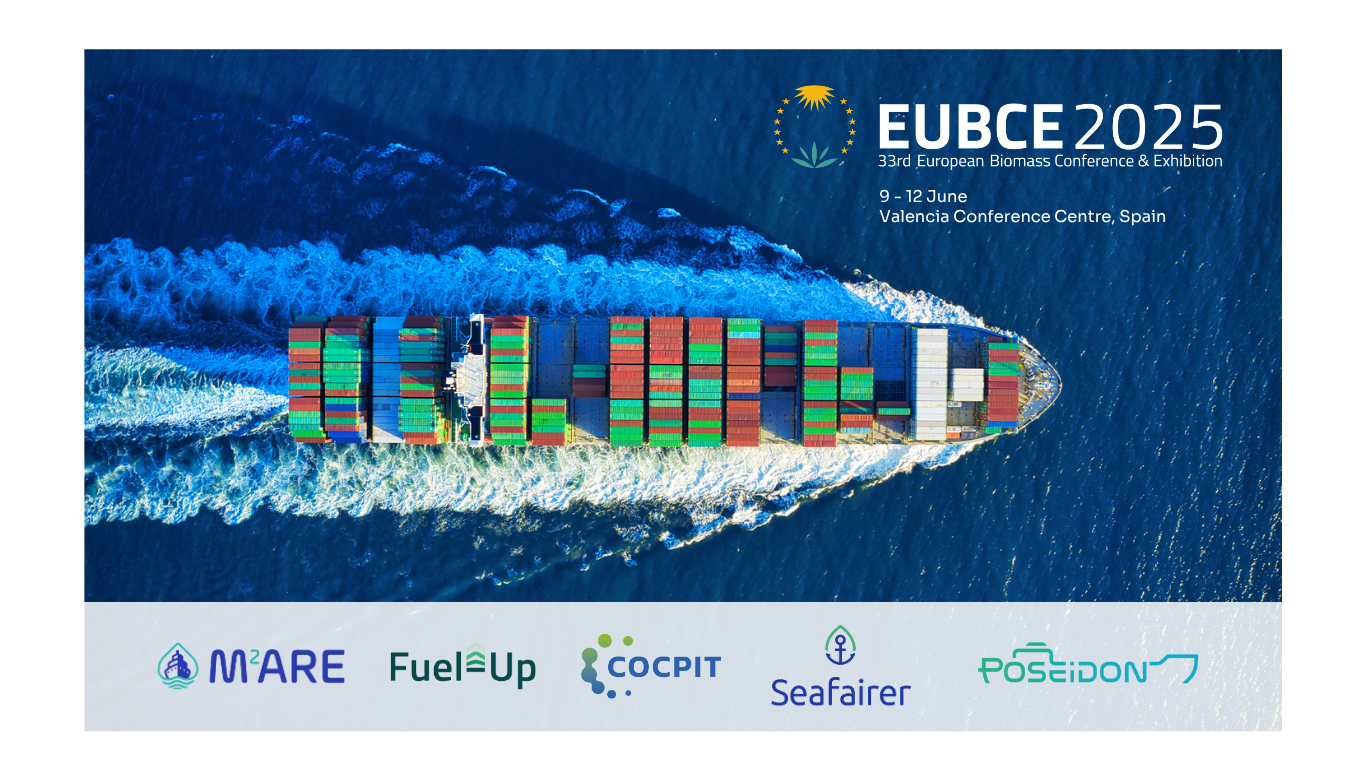On June 10th, 2025, the M²ARE project held a parallel event at the 33rd edition of the European Biomass Conference & Exhibition in Valencia, Spain, hosting five EU projects working on the development of sustainable maritime fuels: COCPIT, SEAFAIRER, FUEL UP, POSEIDON and M²ARE.
This event represented an opportunity to better explore the wide range of applications of maritime biofuels and several approaches that different European projects are using to build a more sustainable biofuel market for the shipping sector.
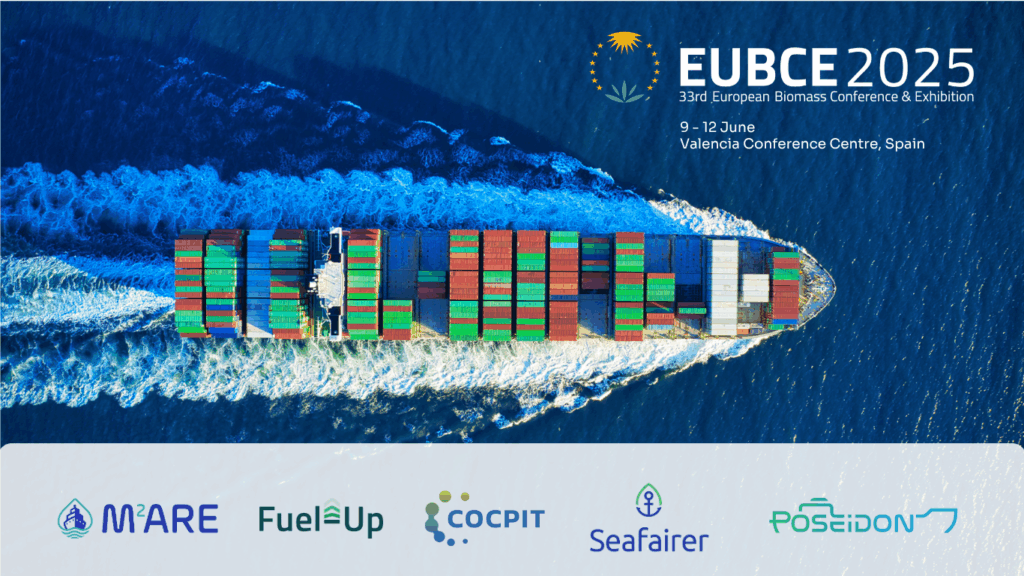

Michael Bampaou of CERTH (Greece) kicked off the series of presentations, introducing the ambitious goals of the M²ARE project to decarbonize the maritime industry. The project centers on harnessing the power of methanol to significantly decrease Greenhouse Gas (GHG) emissions from shipping, which currently account for 3-4% of total EU emissions.
A key focus of M2ARE is the innovative use of biogenic CO₂ and renewable hydrogen to produce methanol. The project is committed to exploring a diverse array of bio-CO₂ sources, including those from biogas production, biomass power plants, pulp and paper mills, and fermentation processes. Recognizing the complexities involved, M2ARE will also investigate potential impurities in the CO₂ stream that could impact the methanol synthesis catalyst.
Looking ahead, the M2ARE project is developing a next-generation methanol synthesis process. A dedicated pilot plant will enable the demonstration of the production of a tailor-made maritime methanol fuel, which will then be rigorously tested in existing shipping engine test benches. This crucial step aims to ensure that the produced methanol is not only environmentally friendly but also fully compatible with current maritime infrastructure.
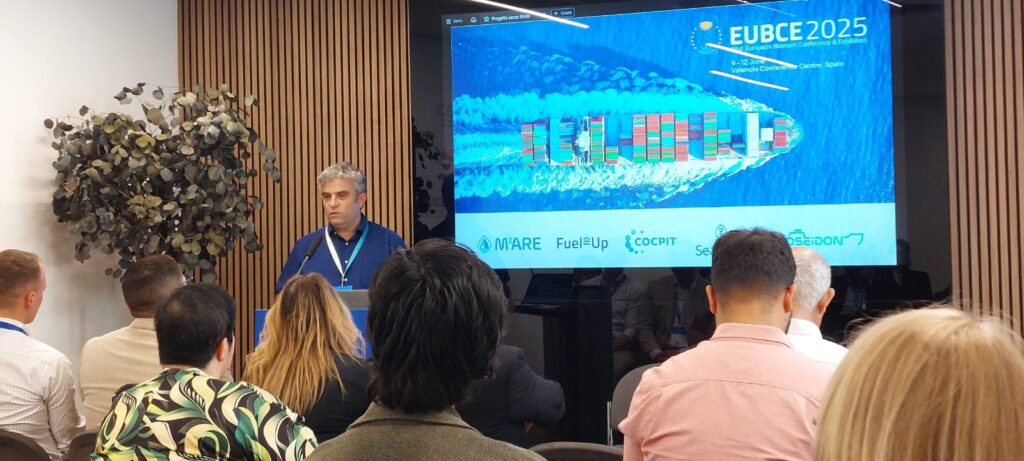
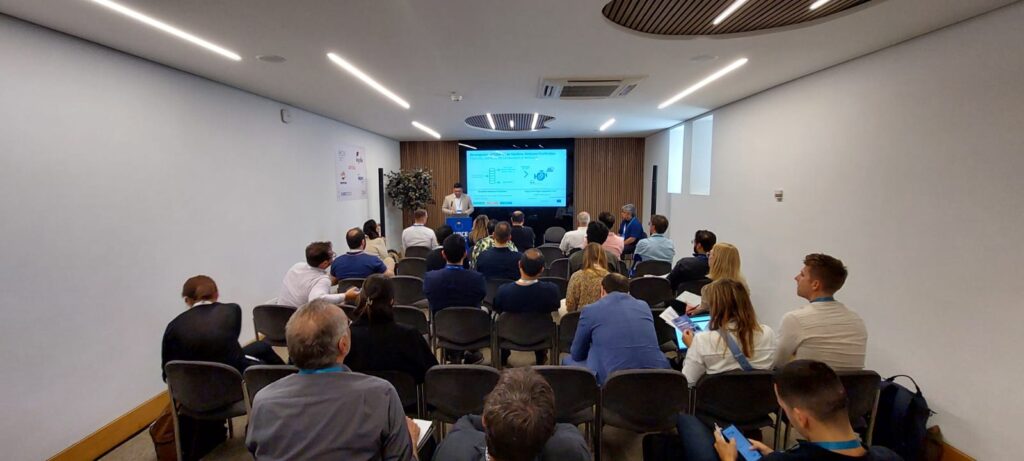

Evanthia Nanaki from HelleniQ Energy presented the COCPIT project, delivering significant benefits for decarbonization in both the shipping and aviation sectors.
The project directly supports ambitious climate goals, including the 2023 International Maritime Organization (IMO) GHG strategy, which targets a reduction in greenhouse gas emissions by at least 20% by 2030 and 70% by 2040. COCPIT also aligns with the FuelEU Maritime regulation’s commitment to cut the average GHG intensity by 80% by 2050.
COCPIT is at the forefront of sustainable fuel innovation, developing microalgae cultivation in photobioreactors (PBRs) that feature a semi-transparent photovoltaic (STPV) shell. These microalgae can be converted into fuels using two distinct pathways: Hydroprocessed Esters and Fatty Acids (HEFA) and Hydrothermal Liquefaction (HTL), ultimately producing sustainable fuels for both aviation and shipping.
HelleniQ Energy is leading comprehensive analyses for the project, including scenario assessments, techno-economic evaluations, sustainability indicator analysis, and stakeholder mapping, ensuring a robust and impactful approach to this vital decarbonization effort.
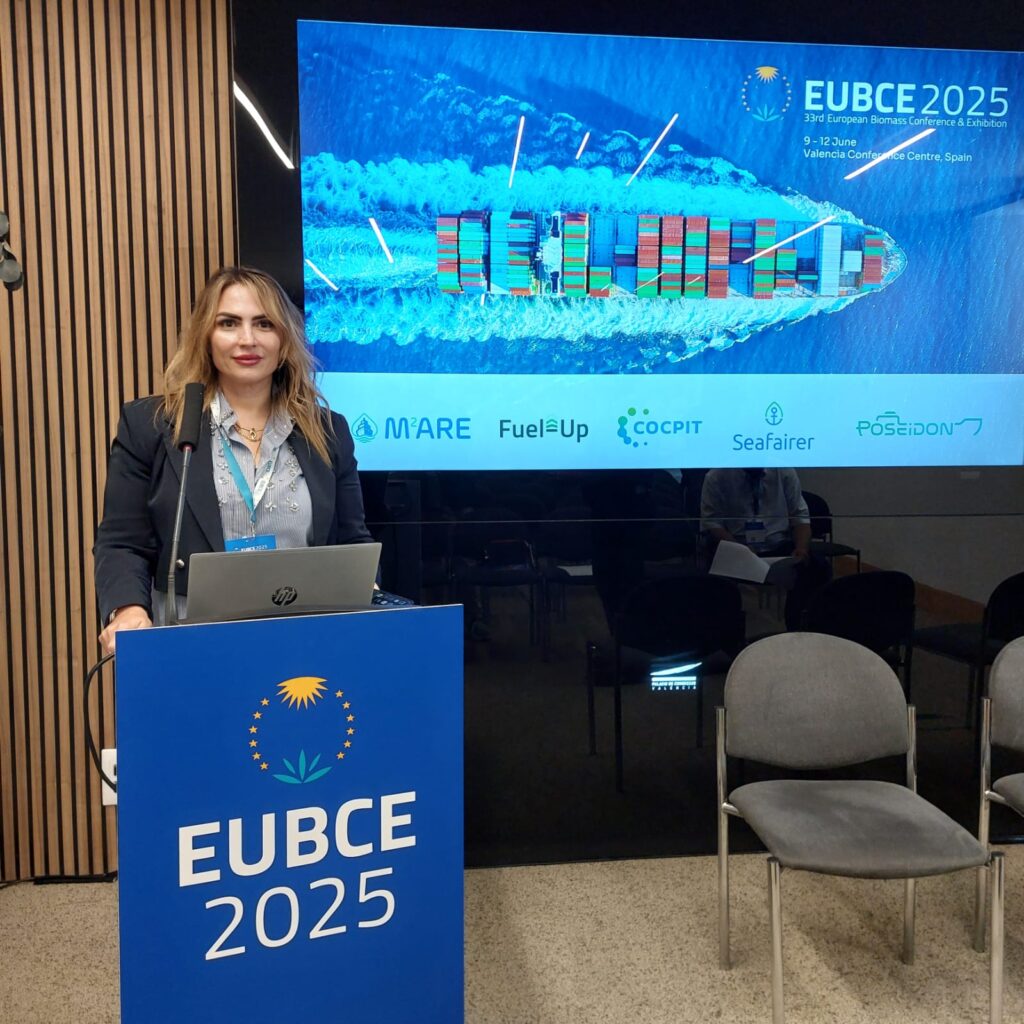
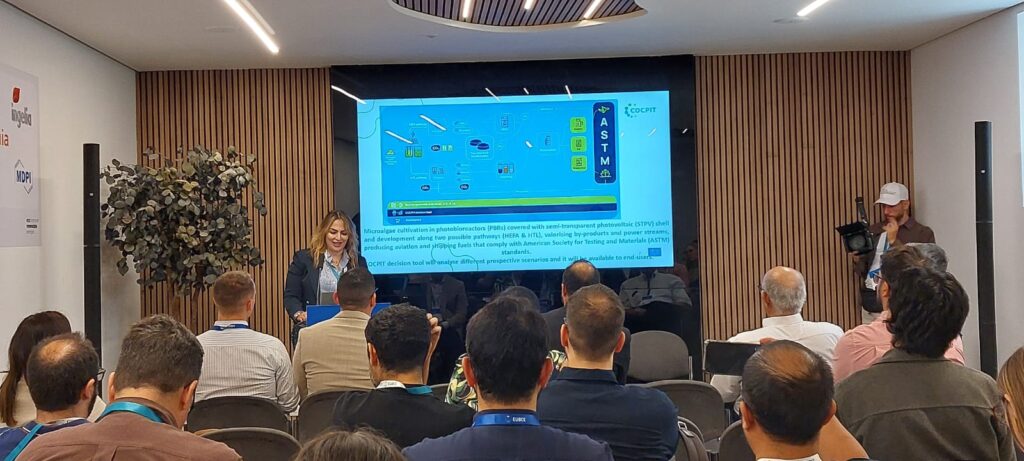
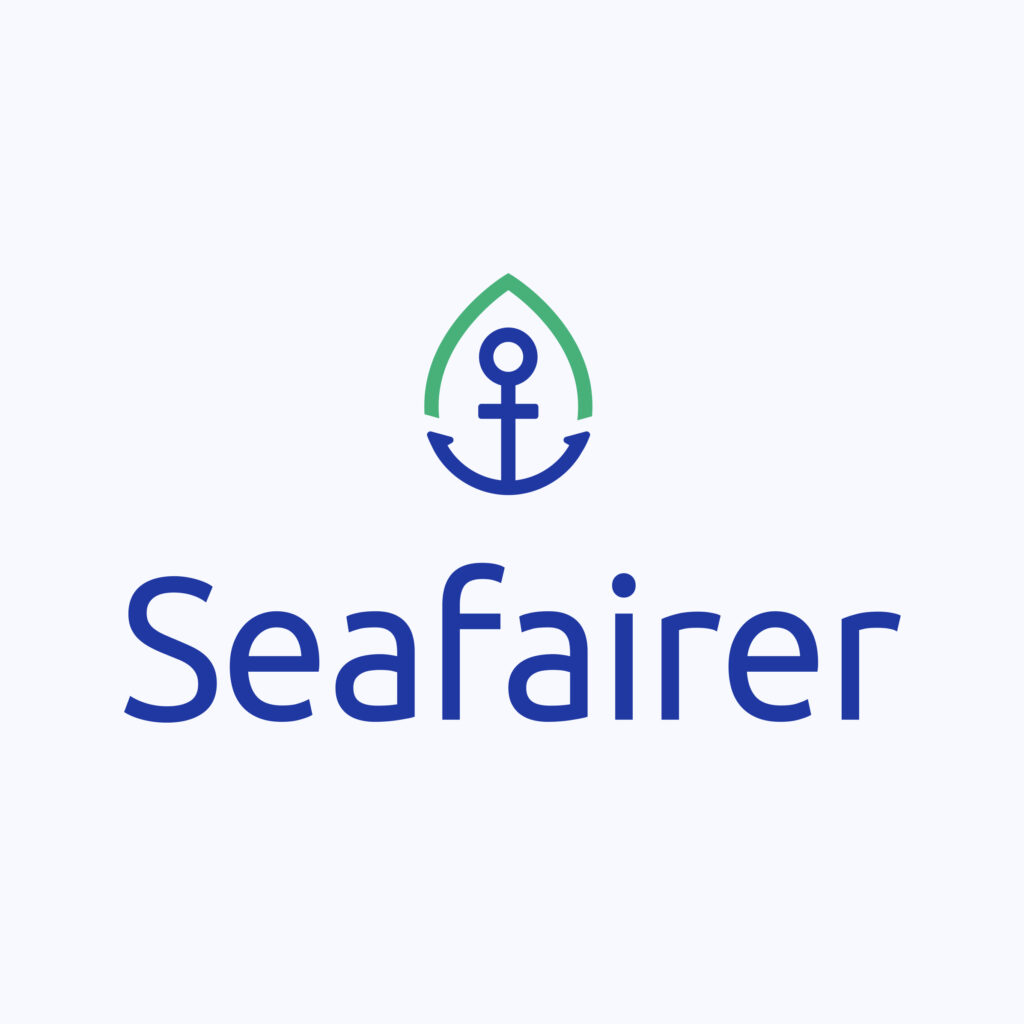
Daniel Pichler, representing the Seafairer project, was the third speaker at the joint workshop. He presented the key challenges that motivated the project’s development and the innovative solutions it proposes. Seafairer introduces a Waste-to-Value approach within a single unit, based on an innovative thermochemical conversion process capable of co-generating three main products:
- High-quality bio-oil (biofuel): a promising marine biofuel with strong potential for decarbonising maritime transport;
- Syngas, rich in hydrogen, which contributes to the process’s self-sufficiency through internal recirculation;
- Biochar, a stable carbon sink, suitable for use as a soil amendment and organic fertiliser.
A major advantage of this technology is its reliance on a single input: biogenic feedstock. Initially, Seafairer will use three types of feedstock — rice husk, biowaste sieving material, and agave bagasse — with plans to expand to an additional five to seven types. The project’s upcoming phases will follow two strategic pathways:
- Direct application of the advanced biofuel;
- Integration of the intermediate bio-oil into existing refinery infrastructures.
The outcomes will support a detailed Life Cycle Assessment (LCA) focusing on total GHG emissions, the development of a commercial business case for EU and international deployment, and the final validation of the produced biofuel.
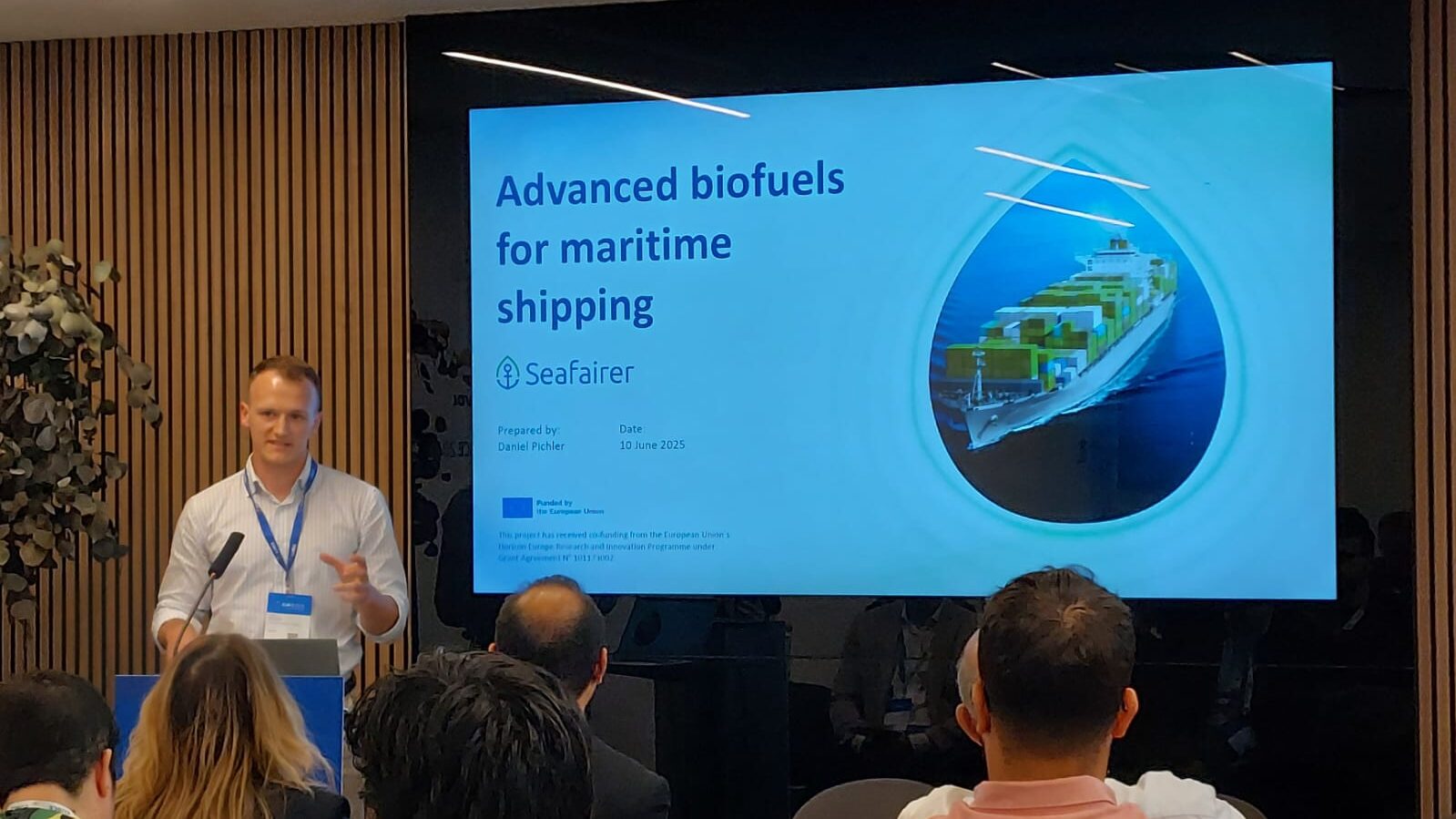

The Fuel-Up project was presented by Duncan Akporiaye from SINTEF, introducing its main objectives in revolutionizing the aviation and marine transport sectors by transforming forest waste into advanced, sustainable biofuels through pyrolysis. This EU co-funded project has ambitious objectives aimed at accelerating the green transition and achieving significant decarbonization:
- Producing Advanced Biofuels from Waste: Fuel-Up aims to demonstrate the efficient production of renewable sustainable aviation fuels and marine fuels, utilizing 100% biogenic waste as feedstock.
- Drastic Emission Reductions: The project targets an impressive 80% reduction in greenhouse gas (GHG) emissions compared to conventional fossil fuels and a 47% reduction against current advanced biofuels. Furthermore, it will explore scenarios for green hydrogen production to enhance its environmental impact.
- Building New EU Biofuel Value Chains: Fuel-Up is dedicated to developing comprehensive roadmaps and scaling up production to establish new EU value chains for biofuel production by 2030. The long-term vision includes replication by 2035 and widespread deployment across 25 sites in 12 potential EU countries by 2040.
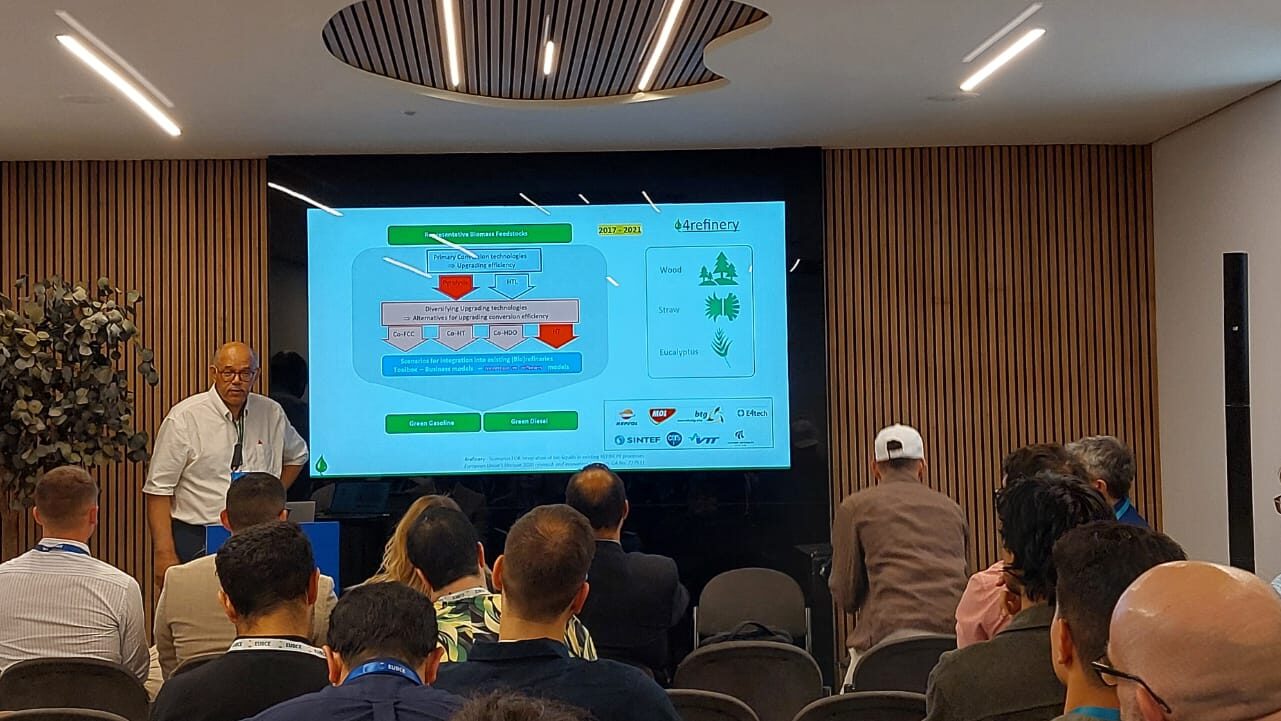

Feliu Sempere introduced the POSEIDON project, pioneering the use of e-methanol as a marine fuel and demonstrating innovative solutions across the entire value chain. The project will explore two CO₂ sources – biogenic from biogas and industrial from lime production – to create a sustainable e-methanol supply. A new hybrid power-to-e-methanol technology (TRL7) will be built and tested under realistic conditions.
The produced e-fuel will undergo rigorous testing in both 2-stroke and 4-stroke engines, culminating in open-sea trials on a pilot boat. POSEIDON also aims to establish e-methanol value chains in the ports of Valencia and Thessaloniki, fostering collaboration among stakeholders to accelerate the transition to e-fuels.
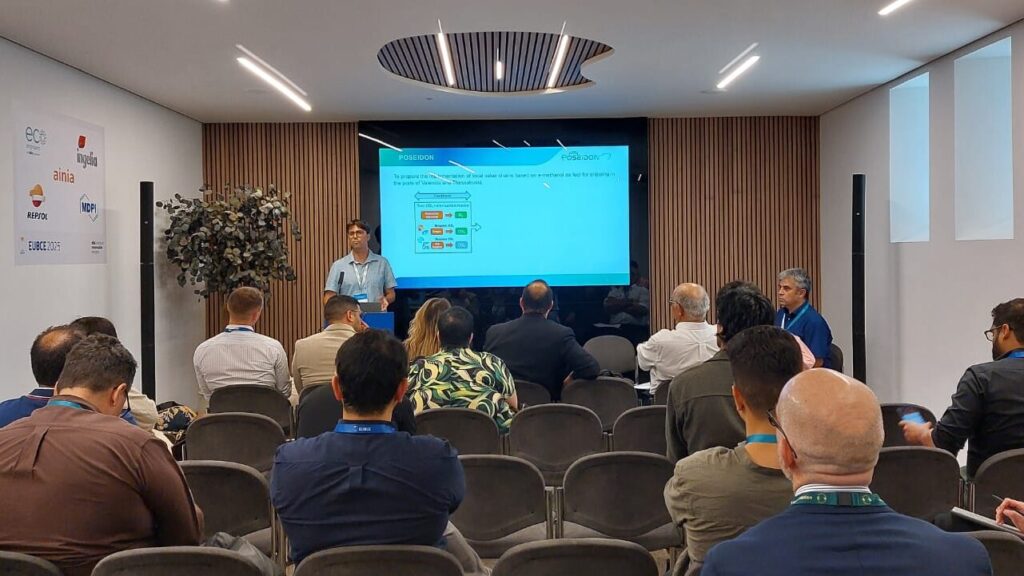
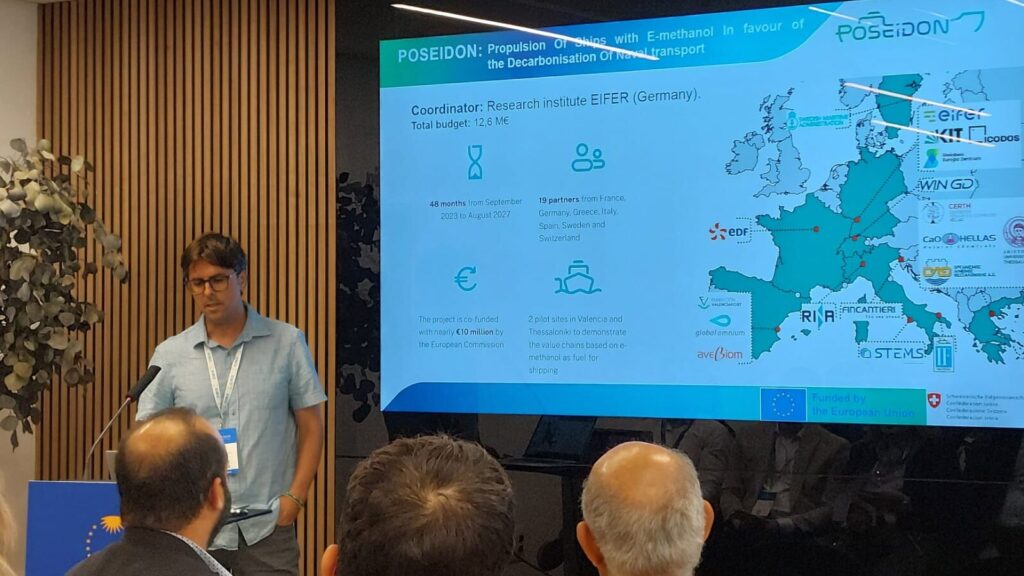
This parallel event was organized by ETA Florence as partner of the M2ARE project, and concluded with a panel discussing the technological challenges and opportunities of adapting biofuels for existing shipping engines. Key topics included promising feedstocks from the participating projects, critical testing and certification requirements, and industry contributions for faster adoption. The discussion also covered economic and logistical considerations for biofuel integration, their impact on reducing greenhouse gas emissions, and future collaboration among Horizon Europe projects.


